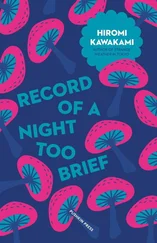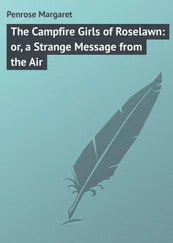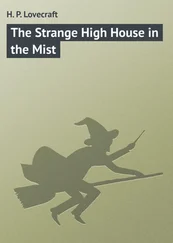“Such lovely breasts. Such a lovely girl you are, Tsukiko,” Sensei said as he caressed my face. He caressed my face, over and over. His caresses made me sleepy. I’m going to fall asleep, Sensei, I said, and he replied, Then go to sleep.
I don’t want to sleep, I murmured, but I couldn’t keep my eyes open any longer. It was as if his palms had some kind of hypnotic effect. I don’t want to sleep. I want to stay here in your arms, I tried to say, but I couldn’t get the words out. I don’t want to… don’t want to… don’t want… to…, at last my utterances broke apart. At some point, Sensei’s hand stopping moving as well. I could hear his light sleeping breath. Sensei, I said, summoning the last of my strength.
Tsukiko, Sensei seemed to rouse himself in reply.
As I drifted off to sleep, I could faintly hear the seagulls’ cries above the sea. Sensei, don’t go to sleep, I tried to say, but I couldn’t. I was being pulled down into a deep sleep, there within Sensei’s arms. I gave in to it. I let myself be dragged down into my own slumber, far removed from Sensei’s slumber. The seagulls called out their cries in the morning light.
I THOUGHT I heard a rustling murmur. It was the camphor tree outside the window. Come here, it sounded like, or Who are you? I stuck my head out the open window to look and see. A number of small birds were flitting about among the branches of the camphor tree. They were fast, and I couldn’t catch sight of them. I only knew they were there because the leaves moved around them as they fluttered about.
In the cherry trees in Sensei’s garden, I’d seen birds before, come to think of it. It was nighttime. The birds would flap their wings a few times and then settle down. These little birds in the camphor tree, they weren’t settling down at all. They just kept fluttering about. And the camphor tree kept murmuring, Come here.
I hadn’t seen Sensei for some time now. Even when I went to Satoru’s place, I still did not come across him sitting there at the counter.
As I listened to the murmur of the branches of the camphor tree, Come here, I decided to go back to Satoru’s that night. Broad beans were now out of season, but surely the first edamame would have arrived. The little birds continued their flitting about, rustling the greenery.
“ HIYA-YAKKO ,” I ORDERED chilled tofu from my seat at the end of the counter. Sensei wasn’t here. He wasn’t seated on the tatami or at one of the tables either.
Even after I drank down my beer and switched to saké, Sensei still did not appear. The thought of going to his house occurred to me, but that would be presumptuous. While I sat there, distractedly in my cups, I started to grow tired.
I went into the bathroom, and while I sat there, I looked out the small window. As I did my business, I mused that there must be a poem about how depressing it is to look out the window in a toilet and see blue sky. I would say that a window in a toilet would definitely make you depressed.
Maybe I should go to Sensei’s house after all , I was thinking to myself as I came out of the bathroom, and there was Sensei, sitting up straight as usual in the seat two over from mine.
“Here you are, hiya-yakko ,” Satoru said as Sensei took the bowl he passed over the counter. Sensei carefully doused it with soy sauce. Gently, he picked some of the tofu with his chopsticks and brought it to his lips.
“It’s tasty,” Sensei said straightaway, facing me. Without any greeting or introduction, he spoke as if continuing a conversation we had been having all along.
“I ate some earlier myself,” I said, and Sensei nodded lightly.
“Tofu is quite special.”
“Yes.”
“It’s good warm. It’s good chilled. It’s good boiled. It’s good fried. It’s versatile,” Sensei said readily, taking a sip from the small saké cup.
C’mon, Sensei, let’s have a drink, it’s been a long time, I said, filling his cup.
All right, Tsukiko, let’s have a drink then. Sensei poured for me in return.
We drank quite heavily that night. More heavily than we’d ever drunk before.
ARE THOSE BOATS out at sea, there, what look like needles lined up along the horizon? Sensei and I fixed our gaze on them for a moment. My eyes got dry as I stared out at them. I quickly lost interest, but Sensei’s gaze was interminably steady.
“Sensei, aren’t you hot?” I asked, but he shook his head.
I wondered where we were. Was this a dream? I had been drinking with Sensei. I had lost count of how many empty saké bottles there had been.
“Must be littleneck clams,” Sensei murmured, shifting his gaze from the horizon to the tidal flat. There were lots of people gathering shellfish in the shallows.
“They’re out of season, but I wonder if you can still find them around here,” Sensei continued.
“Sensei, where are we?” I asked.
“We’re back again,” was all Sensei said in reply.
Back again? I asked, and Sensei repeated, Yes, back again. I find myself here sometimes.
“I prefer the common clam to littleneck clams,” Sensei went on brightly, interrupting me as I was about to ask where this place was that he sometimes went to.
“Oh, I like littlenecks,” I replied, caught up in his enthusiasm. Seabirds rustled and flew about. Very carefully, Sensei set down the to-go glass of saké he had been holding atop a rock. There was still about half left.
“Tsukiko, please, have some if you like,” Sensei said. I looked down and was surprised to see that I too was holding a to-go glass of saké. Its contents were almost gone, though.
“When you’re finished drinking that, do you mind if I use the glass as an ashtray?” Sensei asked, and I hastily finished off the rest.
“Much obliged,” Sensei took the glass from me and tapped the ash from his cigarette into it. Thin wisps of cloud hung in the sky. Every so often, children’s voices echoed up from the tidal flat. I thought I heard one of them say, Look what a big one I dug up!
“Where are we?”
“I don’t really know,” Sensei replied, casting his eyes toward the sea.
“Have we left Satoru’s place?”
“Probably not.”
“What?”
I was surprised by how loudly my own voice echoed. Sensei was still looking off at the sea. The wind was damp and smelled like the ocean.
“Sometimes I find myself here, but this is the first time I’ve ever come here with someone else,” Sensei squinted.
“But it’s probably just a matter of convincing myself that we came here together.”
The sun was strong. The seabirds rustled as they flew about. I could probably imagine that it sounded like Come here. At some point, my hand was clasped around a to-go glass of saké. It was filled to the brim. I quaffed it in one swig, but I didn’t feel the least bit drunk. It’s that kind of place, Sensei said as if to himself.
“Hey…,” Sensei said. As he spoke, his profile seemed to blur.
“What’s the matter?” I asked, and Sensei looked sad.
“I’ll be sure to come back again,” he said, and then simply disappeared. The cigarette he had been smoking had vanished. I wandered a few meters around in each direction, but he was gone. I even looked behind the rocks, but he wasn’t there either. I gave up and sat down on a rock, gulping down the saké. If you set down an empty bottle on the rocks, it would disappear in the blink of an eye. The same way that Sensei had disappeared. It must be that kind of place. I kept drinking as many glasses of saké as sprang up in my hand, while I looked off toward the sea.
JUST AS HE’D promised, Sensei reappeared momentarily later.
“How many have you had?” he said as he came up from behind me.
Читать дальше
![Хироми Каваками Strange Weather in Tokyo [= The Briefcase] обложка книги](/books/29150/hiromi-kavakami-strange-weather-in-tokyo-the-br-cover.webp)










